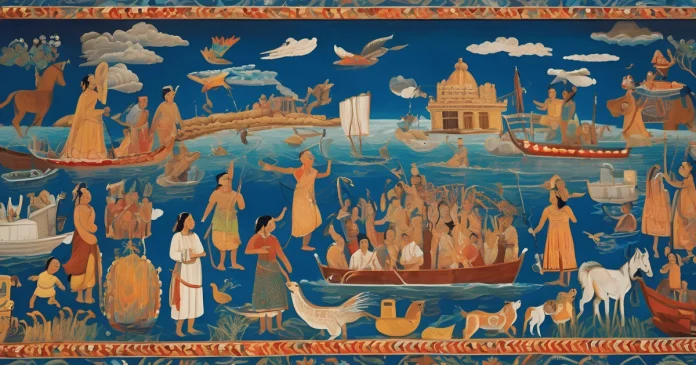Throughout history, the concept of prophets has been deeply intertwined with human civilization. Religious texts describe them as divine messengers, sent to guide humanity with sacred wisdom. Yet, an alternative perspective suggests they may have been advanced scholars—keepers of lost knowledge from a forgotten era. Could these revered figures have been early scientists, philosophers, or reformers, misunderstood through the lens of mythology and faith?
The Traditional Perspective: Prophets as Divine Messengers
Most major religions—Christianity, Islam, Judaism, and others—regard prophets as chosen individuals who received revelations from a higher power. Their roles were to convey moral teachings, establish religious laws, and guide societies towards righteousness. Their messages often contained deep philosophical and ethical insights, aligning with the spiritual needs of their time.
Sacred texts speak of Moses receiving the Ten Commandments, Muhammad’s revelations in the Quran, and Jesus performing miracles as a testament to divine authority. These narratives emphasize the supernatural aspect of prophethood, reinforcing the belief that these figures were more than just wise men; they were intermediaries between the divine and humanity.
The Alternative View: Prophets as Scholars and Intellectuals
Some historians and researchers argue that prophets may not have been celestial envoys but instead highly intelligent thinkers who shaped the course of history. Before the widespread use of writing and documentation, knowledge was often preserved through oral traditions. The teachings of these individuals could have been later mythologized, transforming them from scholars into figures of religious reverence.
- Keepers of Ancient Knowledge – Some theories suggest that prophets were individuals who retained and passed down scientific, mathematical, and philosophical wisdom from earlier civilizations. Their ability to predict natural events or prescribe effective medicinal remedies may have seemed miraculous to less advanced societies.
- Social Reformers – Many prophets challenged corrupt leadership, opposed social injustices, and introduced progressive moral codes. Figures like Confucius, Zoroaster, and even Buddha reshaped their societies through teachings that continue to influence the modern world.
- Mythologization Over Time – It’s possible that stories of prophets accumulated supernatural elements over centuries of retelling. Historical records suggest that many events in religious texts have parallels in older mythologies, indicating a blend of history and legend.
The Pre-Flood Era: A Lost Civilization?
Many ancient texts, including religious scriptures, make references to a great flood that wiped out entire civilizations. The story of Noah’s Ark is one of the most well-known versions, but similar flood myths exist in Sumerian, Babylonian, Hindu, and even Native American traditions. What if prophets were remnants of an advanced society that existed before this cataclysmic event?

- Lost Technological and Scientific Knowledge – Some alternative historians suggest that pre-flood civilizations possessed highly advanced knowledge, possibly even rivaling our own. If prophets were survivors of these societies, their teachings could have been attempts to preserve lost wisdom.
- Atlantean and Sumerian Links – Some researchers propose connections between the lost city of Atlantis, Sumerian priest-kings, and biblical prophets. Could figures like Enoch, known for his vast knowledge and connection to celestial beings, have been a scholar of this forgotten age?
- Flood as a Reset Event – If a great deluge truly occurred, it would have erased most records of pre-existing civilizations, leaving only fragmented stories behind. Prophets may have carried forward what little remained of their intellectual and spiritual traditions.
Science and Religion: Can They Coexist?
The debate over whether prophets were divine messengers or enlightened scholars highlights a broader discussion about the intersection of science and faith. The idea that early intellectuals were venerated to the point of divinity does not necessarily diminish the value of their teachings. In fact, it adds a new layer of appreciation for their contributions to human progress.
Whether one views prophets as messengers of God or visionaries of their time, their influence on human history is undeniable. Their stories continue to inspire, offering guidance, wisdom, and a sense of purpose to millions. Perhaps the real question is not whether they were divine, but how we interpret their teachings in our evolving world.
What do you think? Were prophets divine, or were they the forgotten intellectuals of an ancient past?

